Mark Sampson: FA sorry over race remarks to Eniola Aluko & Drew Spence
- Published
FA chief's request 'bordering on blackmail' - Aluko addresses inquiry
The FA has apologised to two players for racially discriminatory remarks by sacked England women's boss Mark Sampson.
An independent barrister ruled Sampson made unacceptable "ill-judged attempts at humour" on two occasions, to Eniola Aluko and Drew Spence.
As the report of Katharine Newton's reopened investigation was published, FA bosses faced uncomfortable questions over four hours at a parliamentary inquiry, with one MP labelling the organisation "shambolic".
Chelsea striker Aluko, 30, said she felt "vindicated and relieved" by the barrister's ruling but accused English football's governing body of behaviour "bordering on blackmail" and an agenda to protect Sampson and its own reputation.
Aluko had said the FA was "dismissive" when she first claimed Sampson told her to make sure her Nigerian relatives did not bring the Ebola virus to the friendly against Germany at Wembley in November 2014.
Sampson denied that claim, along with another allegation that he asked a mixed-race player - Chelsea midfielder Spence - if she had been arrested before, and then jokingly suggested she had been arrested four times.
Newton's initial report, completed in March, had cleared Sampson, but new evidence from Spence led to her investigation being resumed.
Despite concluding Sampson had made remarks which were "discriminatory on the grounds of race", she did not believe he is racist and said Aluko was not subjected to "a course of bullying".
A report of the reopened investigation, which says Sampson had difficulty judging boundaries around banter, was released as FA bosses and Aluko faced a Department of Digital, Culture, Media and Sport select committee.
FA chief executive Martin Glenn said Sampson, who was paid nine months' salary on his departure, may proceed with a wrongful dismissal claim.
He was sacked as England women's boss last month after evidence of "inappropriate and unacceptable" behaviour with female players in a previous role.
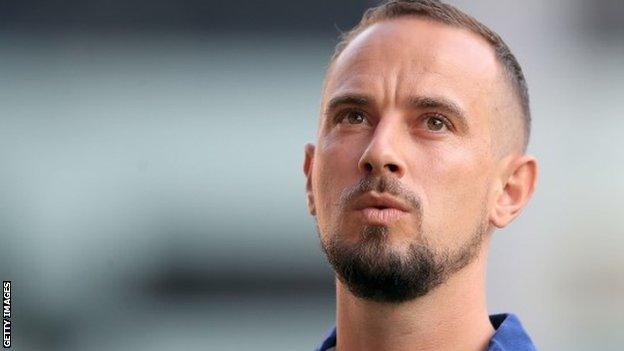
Mark Sampson was in charge of the England women's team for four years
'Bordering on blackmail' - Key points from hearing
Aluko, who has been capped 102 times, said she had not received payment of an £80,000 settlement fee in full from the FA.
"Martin Glenn said if I wrote a statement saying the FA were not institutionally racist he would release the second tranche of the money. I felt that was bordering on blackmail," she said. Glenn denies asking her to do this.
FA chairman Greg Clarke complains of "fluff about institutional racism" claims, then withdraws remark after MPs criticise.
Aluko said she was "astonished" at an email from Clarke, in reply to a document about the case from the Professional Footballers' Association (PFA), which read: "I've no idea why you are sending me this. Perhaps you could enlighten me?"
The Nigeria-born striker accused England goalkeeping coach Lee Kendall of speaking to her in a fake Caribbean accent.
In a written submission to the inquiry, Aluko said she understood a black actress was hired to role-play "bad behaviour and a selfish attitude" with players - which she believed was meant to represent her.
Committee member Jo Stevens MP told Clarke: "I've never heard such shambolic evidence about the governance of an organisation".
Clarke heavily criticised the PFA, accusing it of "walking away" from alcoholics and addicted gamblers while paying "millions on salaries".
I didn't expect it to be Eni Aluko versus the FA
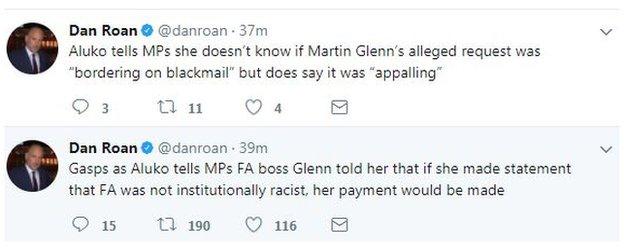
BBC sports editor Dan Roan on reaction to Aluko's evidence
What does the FA say?
In a statement, FA chief executive Glenn said he and his organisation wanted to "sincerely apologise" to Aluko and Spence and that it was "not acceptable" that they had been subjected to discriminatory remarks from an FA employee.
He said there was "much to learn from this episode", that the FA needed a better way to support whistleblowers, and it was "regrettable" Aluko did not take part in Newton's initial investigation.
Aluko, who has not played for England since making her claims in a 2016 FA inquiry into its management culture, explained she had not participated because she felt the first internal inquiry had been flawed.
At the hearing, MP Julie Elliott asked Glenn if he accepted the FA had failed in its duty of care to players.
Glenn: "We have clearly made mistakes."
Elliott: "You can't say you have failed in your duty of care. I think that speaks volumes."
Sampson, 35, had earlier been cleared of wrongdoing by the internal inquiry, and Newton's initial report, following discrimination allegations made by England players, including Aluko.
He said his conscience was clear, and denied being a racist.
FA chairman Clarke accepted criticism around the recruitment of Sampson in 2013, saying: "What should have happened was a process of due diligence - which does happen now - but did not happen then."
He said there had been "systemic, historic failings" at the FA and added: "When I took the job, there was one other decent applicant. It's career death. I'm willing to risk my reputation to make it better. If it doesn't get better, it's my fault."
I'm not a racist - Sampson
Sampson has 'difficulty judging banter boundaries'
Newton said Sampson's comments were discriminatory on grounds of race within the meaning of the Equality Act 2010, but that was not the same as concluding Sampson is racist.
The barrister also said:
Sampson appears to have difficulty judging the appropriate boundaries when engaging in 'banter' with the players.
Had Sampson remained as manager, she would have recommended he attended equal opportunities and diversity training as soon as possible.
All employees of the FA, regardless of their position and no matter how senior, should be given diversity training
Any training should be appropriately tailored (although by no means limited) to the sorts of circumstances likely to arise in a footballing environment with a particular focus on "banter" and "jokes".
Analysis
BBC sports editor Dan Roan
Well, if the FA thought that that humiliating apology to Eni Aluko put them on the front foot then they were sadly mistaken after some devastating testimony from the former England striker.
What began as a dispute between a player and her national coach has become a scandal that threatens to engulf the entire FA and put some of the most powerful figures in the game under serious pressure.
I think the FA must consider that whereas in the past some of the crises have revolved around a failing England team or the sacking of national managers or the relationship with the professional game, this was all about their commitment to safeguarding, to whistleblowing and once again to their fitness to govern. And it's highly unlikely that this sorry saga will end after today's hearing.
Aluko says she still could not tell you what the FA grievance process is
'A mess' - What happened to Sampson?
The Welshman became England head coach in December 2013 after leaving top-flight side Bristol Academy, now renamed Bristol City Women.
Sampson was dismissed last month for unspecified "inappropriate and unacceptable behaviour" with female players in his job at Bristol Academy.
It emerged that, following a complaint in 2015, a safeguarding assessment found the following year that he did not pose a risk, but the FA's leadership said that having been made fully aware of the details of the claims made against Sampson, he could no longer continue in his role.
The FA insisted its decision was not related to Aluko's claims, but sports minister Tracey Crouch has described the situation as "a mess".
FA technical director Dan Ashworth - who helped appoint Sampson - human resources director Rachel Brace, and forward Lianne Sanderson also appeared in front of the parliamentary hearing to discuss aspects of the Aluko and Sampson cases.
FA chief executive explains Sampson sacking
Timeline
December 2013: Sampson becomes England manager having left Bristol Academy
Early 2014: Complaint against Sampson made relating to his time at Bristol
March 2015: FA safeguarding review panel concludes investigation and in October 2015 he is cleared to continue working in football
May 2016: England forward Eniola Aluko is asked to participate in a cultural review of all England teams by the FA's technical director Dan Ashworth
December 2016: An independent investigation, led by barrister Katharine Newton, hears Aluko's claims that during a meeting in 2015, Sampson made a "highly inappropriate remark"
March 2017: The independent review clears Sampson and his staff of wrongdoing but it is understood Aluko was paid £80,000 in a confidentiality agreement. The FA has said this settlement was to avoid disrupting England's Euro 2017 preparations.
13 September 2017: FA says it received the full safeguarding review panel report on the allegations against Sampson
14 September 2017: The FA says it could re-open its investigation into racism claims against Sampson after further evidence is submitted
20 September 2017: Sampson sacked by FA
2 October 2017: FA chairman Greg Clarke says Sampson should have been sacked "years ago"
18 October 2017: FA apologises to Aluko and Spence for Sampson's remarks
- Published18 October 2017
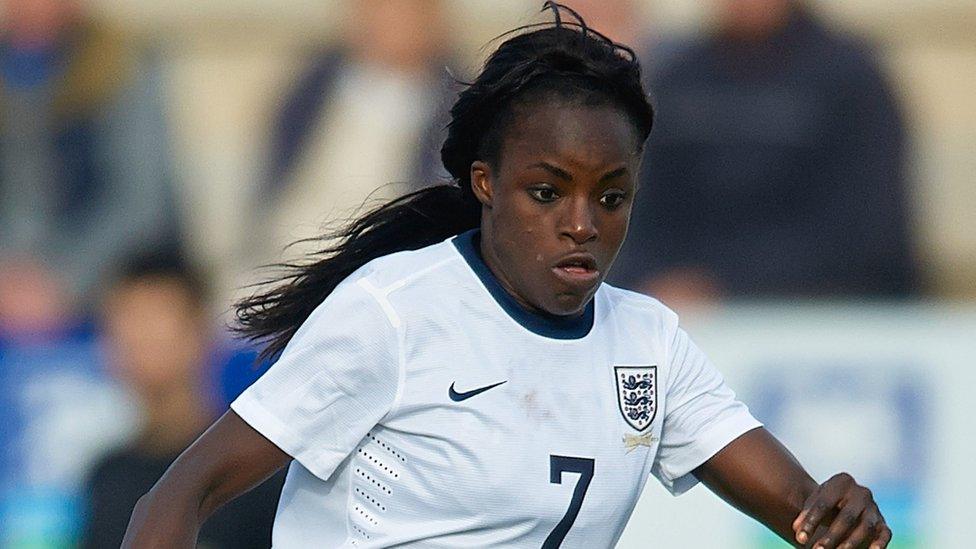
- Published17 October 2017
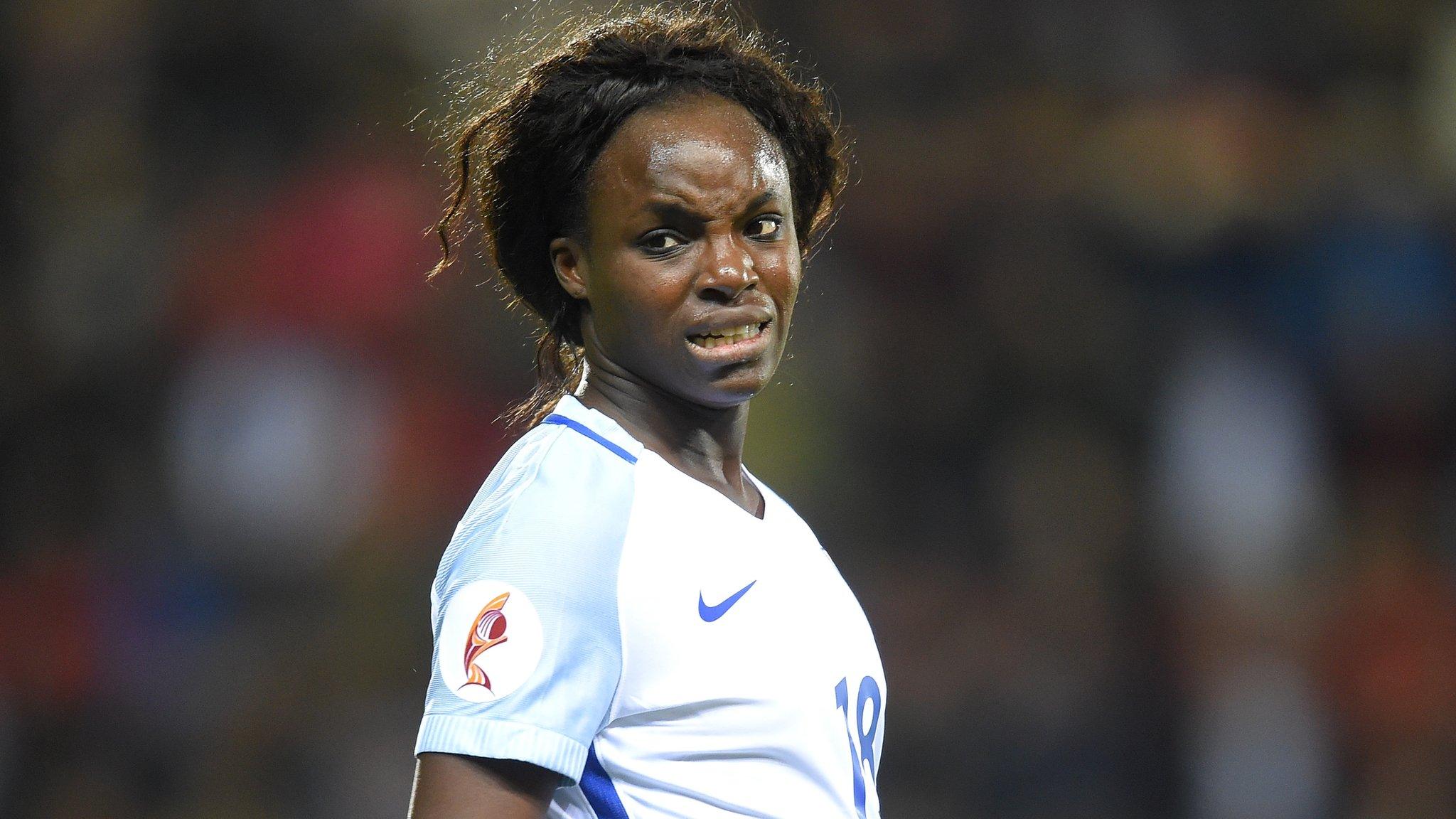
- Published2 October 2017
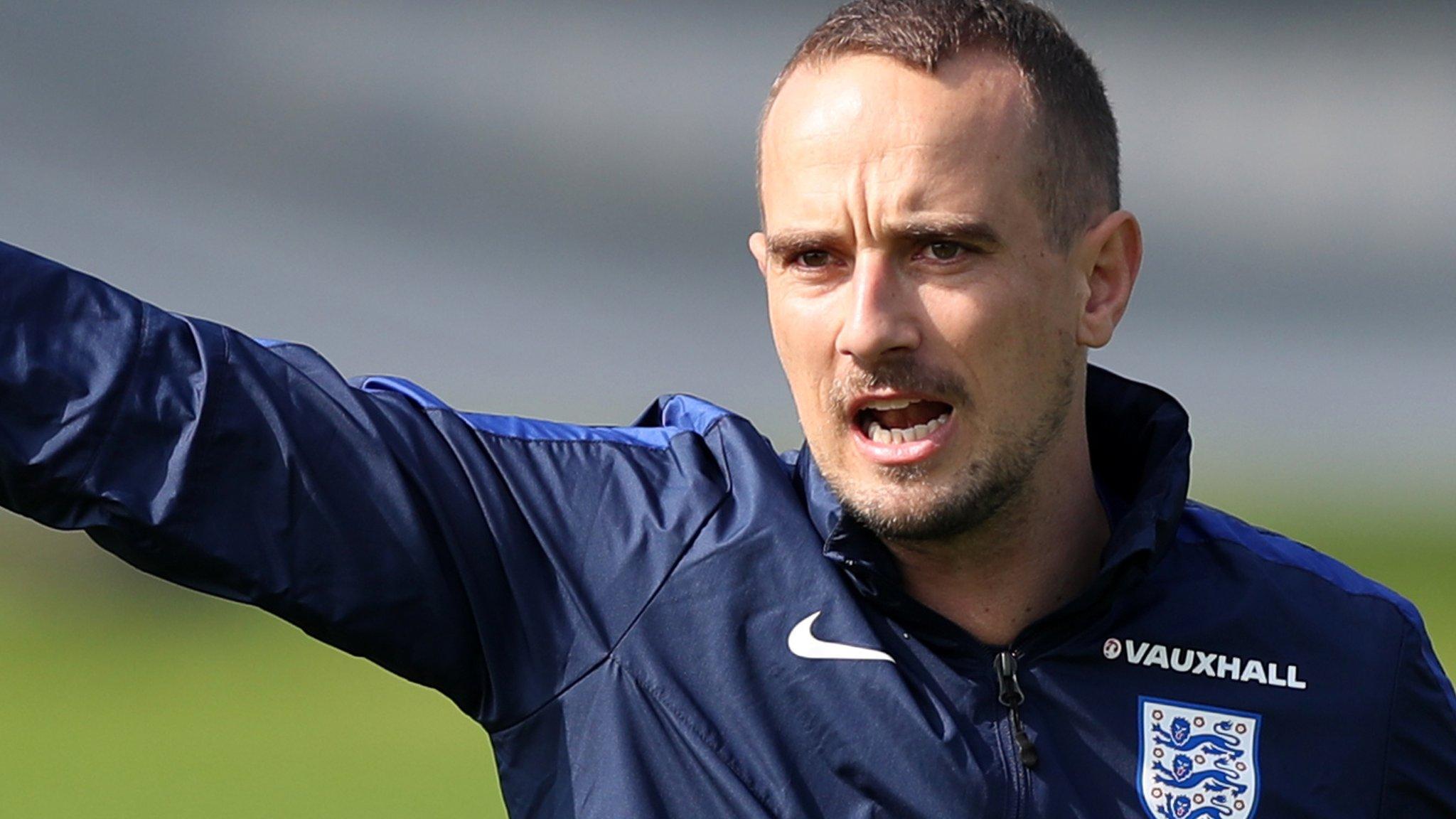
- Published20 September 2017
